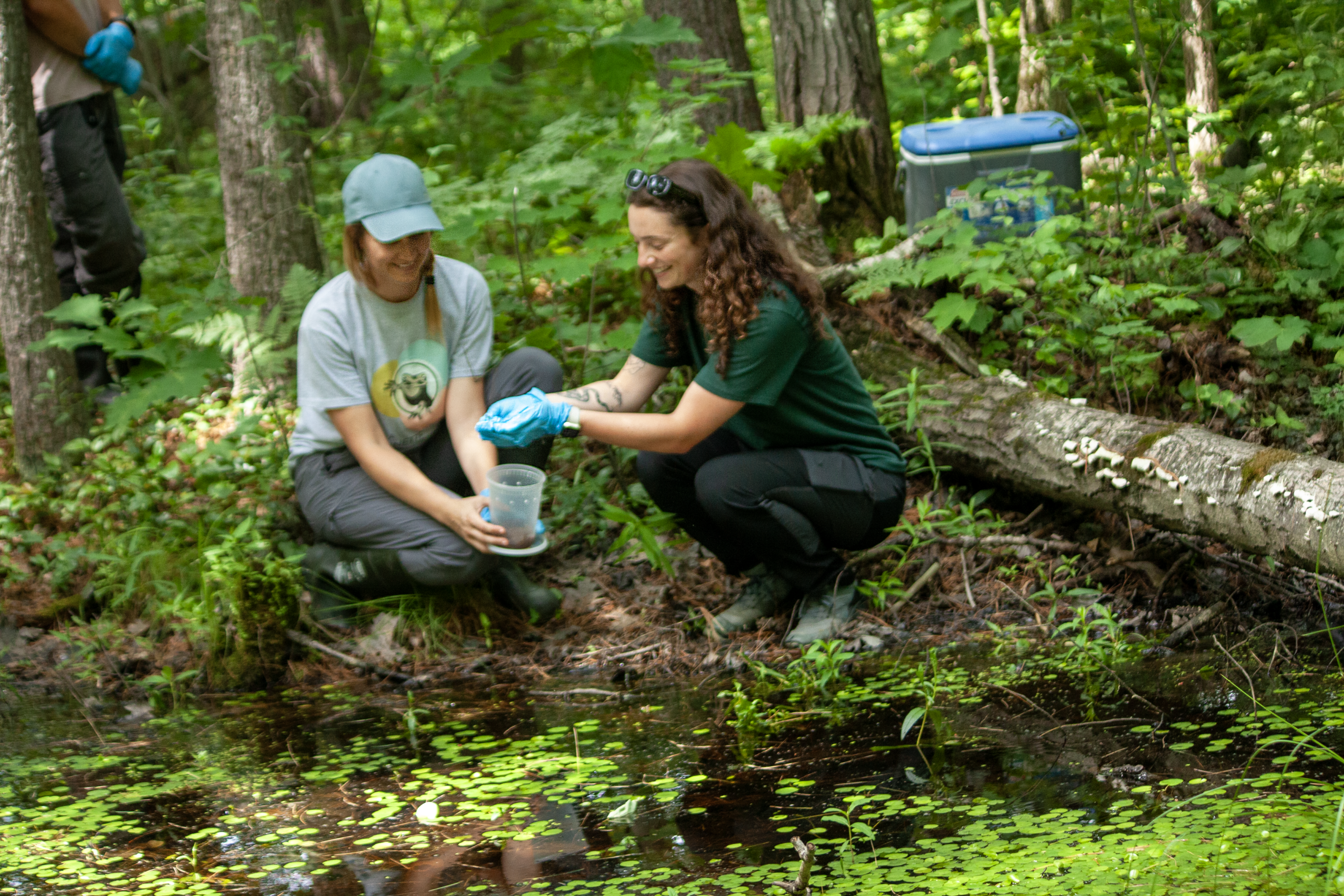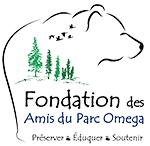
Thanks to its vast natural spaces and diversity of species, Parc Omega is a prime location for scientific research, particularly in conservation and ecology. The Parc Omega Foundation is proud to financially support and collaborate on research projects conducted by universities, government agencies and other organizations that share its mission, particularly those that advance wildlife conservation and environmental understanding.
The park, with the support of its foundation, has contributed to several research projects. Here are just a few examples:
Grassland management project for ground nesting birds
The Parc Omega Foundation is funding and providing access to its grounds for a five-year research project on grassland management, in collaboration with Développement ornithologique Argenteuil (DOA). The project aims to develop strategies for maximizing hay production while reducing mortality of ground-nesting birds during critical nesting periods. By providing financial support and an actual study site, the Parc Omega Foundation is contributing to the development of concrete solutions that reconcile agriculture and conservation.
Caribou genetic biobank – Toronto Zoo
Parc Oméga, with the support of the Parc Oméga Foundation, is participating in a project led by the Toronto Zoo to create a genealogical registry for caribou(Rangifer tarandus) housed in Canadian zoos that are members of the Canadian Association of Accredited Zoos and Aquariums (CAZA). Twelve institutions, including Parc Oméga, provided blood and/or fecal samples for this project. The registry will contain valuable information on sex, ecotype, genetic diversity and relationships between individuals. This data will help improve the long-term management of captive populations, support conservation efforts for the species in Canada, and better guide breeding programs.
Research project on hybrid canids in Quebec – Université du Québec en Outaouais (UQO)
Parc Oméga, with the support of the Fondation Parc Oméga, is participating in a research project led by the Institut des sciences de la forêt tempérée (ISFORT) of the Université du Québec en Outaouais, by providing biological samples and allowing use of the site to test scientific tools. The study, entitled ” Consequences of hybridization between wolves (Canis lupus spp.) and coyotes (Canis latrans var.) on the diet of large canids in Quebec “, aims to better understand the ecological role of hybrid canids in forest ecosystems. By comparing the diets of wolves, eastern coyotes and hybrids using fecal samples, the project aims to assess the impact of hybridization on prey-predator relationships and ecosystem stability.
Development of an innovative field tool to assess wildlife health – ECCC, FNQLSDI and UO
Parc Oméga, with the support of the Parc Oméga Foundation, has collaborated on a research project aimed at supporting aboriginal communities in acquiring knowledge about the health of wildlife species, mainly boreal caribou and bison, through the development of an innovative, non-invasive tool for use directly in the field. The first objective of the project is to create a rapid method for assessing the health of wildlife in the field. This initiative is being carried out in partnership with researchers from the University of Ottawa (UO), Environment and Climate Change Canada (ECCC) and the First Nations of Quebec and Labrador Sustainable Development Institute (FNQLSDI). As part of its participation, Parc Oméga provided biological samples to support the development and validation of the tool.
By supporting our foundation, you are actively helping to fund scientific research projects dedicated to protecting endangered species and preserving biodiversity: make a donation today!
